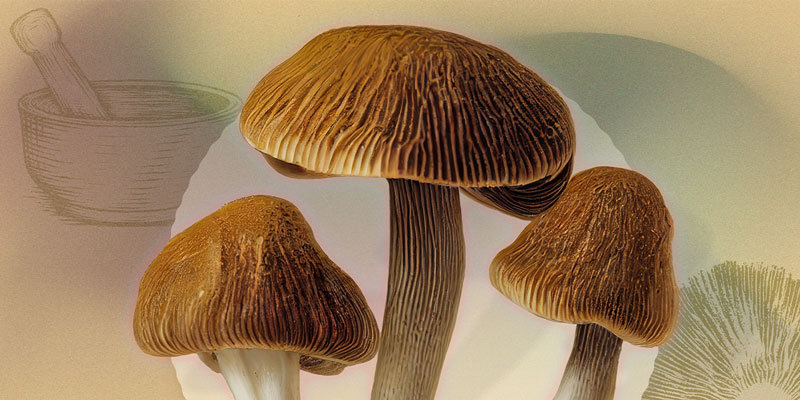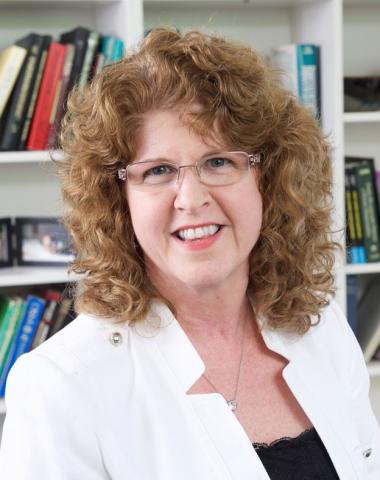Iowa Doctors Investigate the Healing Potential of Psychedelic Drugs
 ILLUSTRATION: NICK BEECHER
Obtained from certain mushrooms, the compound psilocybin coupled with psychotherapy is being studied nationally as a treatment for some mental disorders and addictions.
ILLUSTRATION: NICK BEECHER
Obtained from certain mushrooms, the compound psilocybin coupled with psychotherapy is being studied nationally as a treatment for some mental disorders and addictions.
There was a time when psilocybin, a hallucinogenic drug commonly known as magic mushrooms, was more likely to be doled out at a Grateful Dead concert than as part of any medical treatment. But more than half a century after it was made illegal in the U.S., the psychedelic drug is being revisited by the psychiatric community as a potential tool to fight mental illness and addiction. University of Iowa doctors this year will be the latest to investigate the therapeutic effects of the naturally occurring compound found in some fungi.
In a pilot trial, UI researchers plan to study the use of psilocybin coupled with psychotherapy to treat alcohol use disorder. Professor of psychiatry Peg Nopoulos (85BS, 89MD, 93R, 94F) says her team is interested in the drug’s ability to seemingly restructure the brain’s circuitry and perhaps offer patients struggling with addiction new and more effective treatment options.
 PHOTO COURTESY UI HEALTH CARE
Neuropsychiatrist Peggy Nopoulos
PHOTO COURTESY UI HEALTH CARE
Neuropsychiatrist Peggy Nopoulos
“In the past 20 years, psilocybin has gained a lot of attention in the context of rigorous scientific study,” says Nopoulos, principal investigator for the UI study. “As an academic medical center, it’s important for us to provide cutting-edge treatments. Alcohol abuse is a horrible disease, and people are quite desperate for treatment.”
The double-blind study will treat 20 males ages 25 to 50 diagnosed with alcohol use disorder. Ten randomly selected participants will receive a 25-milligram dose of psilocybin during the third of four weekly individual psychotherapy sessions. The other 10 participants, meanwhile, will receive a 200-milligram dose of ketamine, a drug already approved by the FDA to treat depression.
“A trained psychotherapist will work with them before the trip, during the trip, and after the trip to really focus on the things that they want to get better,” says Nopoulos. “Not only do we want to see if psilocybin works better than ketamine, but we want to understand the brain mechanisms by which it does that.”
Researchers will study the differences between the psilocybin and ketamine groups by monitoring alcohol consumption and using periodic MRI scans to track any biological changes in the brain. They’ll also evaluate any adverse effects of the protocol.
Nopoulos says addictive behaviors like alcohol abuse are the result of negative brain circuits creating looping thoughts such as “I need a drink” or “I don’t feel good if I don’t have a drink,” and patients being unable to break free from those loops.
“It’s thought that psychedelics actually dissolve or inhibit that negative circuit and essentially open up the brain to potential restructuring,” Nopoulos says. “Other circuits would then become more active that are more positive and not so rigid in that loop of negative behaviors and thoughts.”
Produced in numerous species of mushrooms, psilocybin was once used by indigenous cultures in Europe and the Americas in religious and healing rituals. The Swiss chemist Albert Hoffman, known as the father of LSD, gave the drug new life in 1958 when he isolated psilocybin in his lab and developed a synthesis for it. Scientists widely studied the drug as a treatment for alcoholism and other disorders in the 1960s—a decade when psychedelics were also adopted by the counterculture—but Congress’ Controlled Substances Act of 1970 made psilocybin illegal.
Today, a resurgence of scientific interest in the psilocybin has prompted two states, Oregon and Colorado, to legalize it for therapeutic use, and more are expected to follow. Several FDA-approved clinical studies have shown positive results for psilocybin-assisted psychotherapy in treating depression, anxiety, and post-traumatic stress disorder, as well as some addictions. The National Institutes of Health recently funded their first government-backed study of psilocybin treatment for nicotine addiction, and Johns Hopkins University has established a center for psychedelics research. The UI study, meanwhile, will join dozens of clinical trials associated with psychedelics around the nation that are currently under way.
While researching psilocybin may be controversial given the drug’s history, Nopoulos says overcoming stigmas is nothing new for those in the mental health community. “We are fortunate to be able to push forward on something that could benefit patients with mental health disorders and addiction, so I’m more than happy to stand up and fight any backlash,” Nopoulos says. “I feel very strongly that our patients deserve for this science to proceed.”
